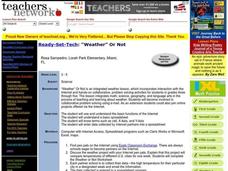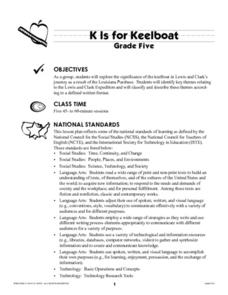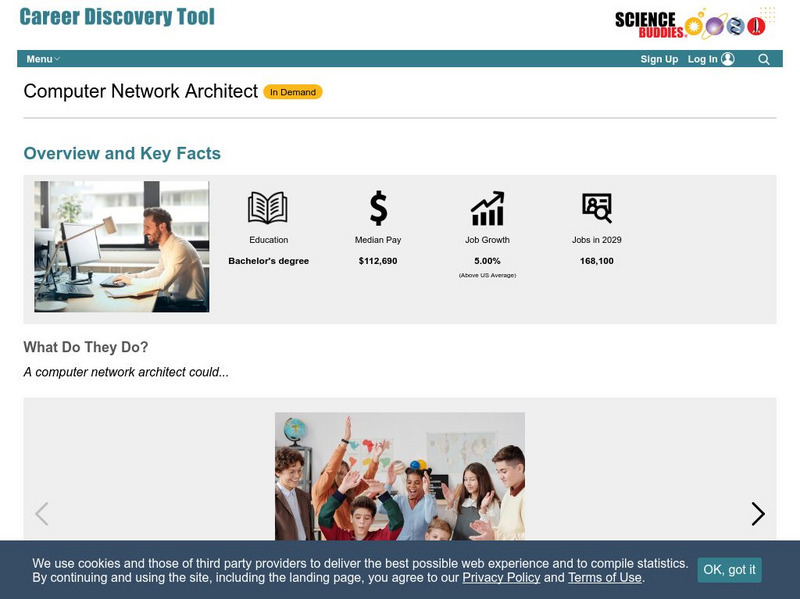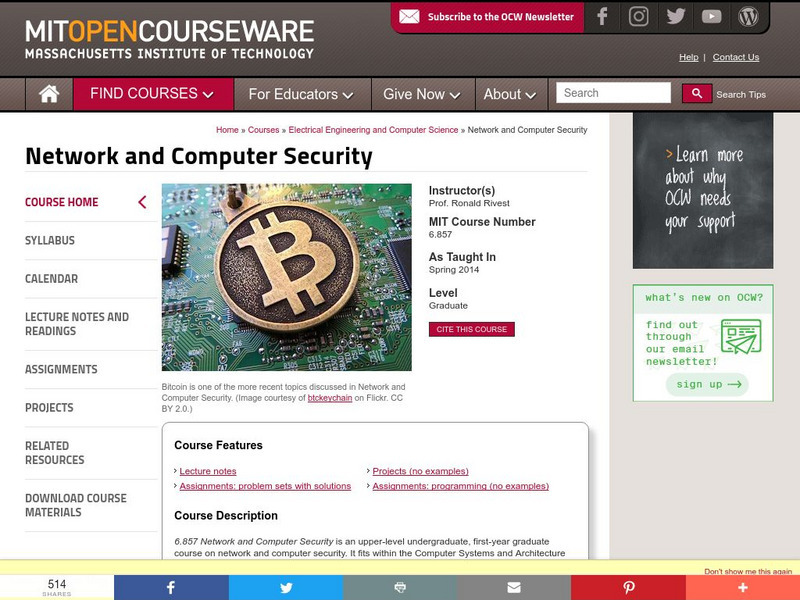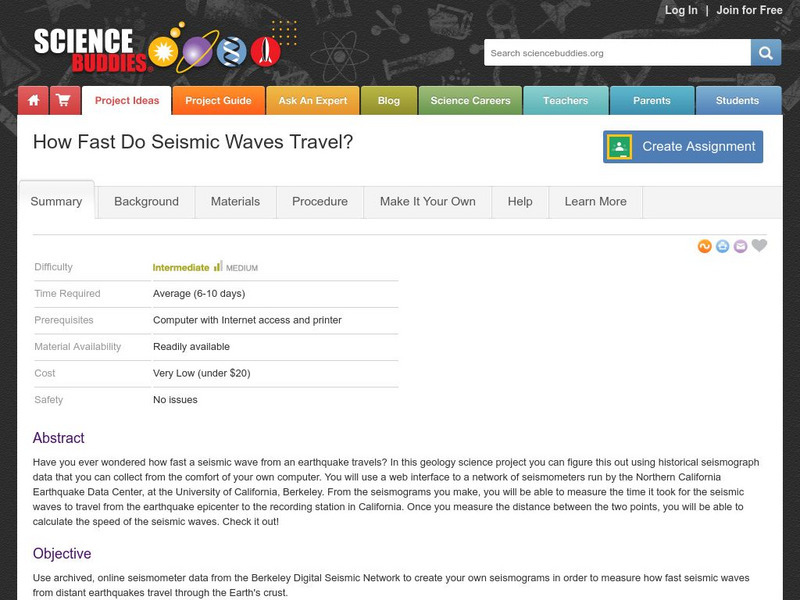Curated OER
Weather Or Not
Pupils use the internet to find pen pals to share in their weather experiment. Individually, they research the high and low temperatures for cities within the United States and email the results to their pen pal. They also develop a...
Curated OER
An Ounce of Prevention...
Students discuss current H.I.V. prevention strategies and adapt these strategies to address the spread of H.I.V. in developing countries. They analyze the results of an international AIDS conference called "The Urgent Search for an AIDS...
Curated OER
Xeriscaping In Your Community
Fourth graders participate in a service-learning project to design landscaping that maximizes water use and utilizes indigenous plant species.
Curated OER
Letters to Local and State Legislators
Students locate their local or state legislator's address. They write and send letters to their local and state legislators critiquing their voting record on environmental issues and sharing their own views on these issues.
Curated OER
K Is for Keelboat
Fifth graders investigate the significance of the keelboat in the Lewis and Clark expedition. They define the key themes of the expedition and classify them in prescribed format, an ABC book.
Curated OER
Careers
Students discuss job choices, careers, and how they can affect lifestyles. They research a job they are interested in and write answers to questions about that job. They prepare a poster which includes information about the career they...
Curated OER
Classroom Triangles
Students use bearing measurements to triangulate and determine objects' locations. Working in teams of two or three, students must put on their investigative hats as they take bearing measurements to specified landmarks in their...
Curated OER
Like Comparing Bison and Fish
Fourth graders examine the cultures of early American Indians in North America and how geographic characteristics impacted the development of American Indian cultures. Students discuss Lewis and Clark, their journey, the Plains Indians,...
Curated OER
The Sum of the Parts
Second graders observe some everyday common objects in order to attempt to learn about simple systems and how they fit together. They observe small details in order to identify the parts of a whole design.
Curated OER
A Little Reminder to Take With You
High schoolers use information already gathered on a specific public health issue to create a public service message in the form of a bookmark. They consult multiple sources to compile sufficient information to create the public service...
Curated OER
Math: a World of Symmetry
Young scholars expand their knowledge of quadrilaterals and identify basic symmetrical forms. Over three weeks, they explore the math, application, and discussion of symmetry. After conducting Internet research, students create...
Other
Business Education Resource Consortium: Computer Science & Information Systems
In this online manual you will find examples of integrated performance activities developed to coordinate with the Computer Science and Information Systems Career Path in the Business Education Career Path and Model Curriculum Standards....
Science Buddies
Science Buddies: Point of a Parabola: Focusing Signals for a Better Wireless Net
Here's a project with practical applications for homes with a wireless network. This project shows you how to build and test parabolic reflectors for the transmitters on your network. You may be able to increase the range of your...
University of Canterbury
University of Canterbury: Cs Unplugged: Sorting Networks
A student team activity that demonstrates an approach to parallel sorting, or how much computation can be done at the same time. It can be done on paper, but the lesson becomes more meaningful if the students do it on a large scale,...
Science Buddies
Science Buddies: Career Profile: Computer Network Architect
A big name for a big job, the network systems and data communications analyst works with computer networks within companies. Science Buddies offers a career profile outlining the many duties of the systems analyst as well as the...
University of Canterbury
University of Canterbury: Cs Unplugged: Steiner Trees
Steiner trees are another way to approach finding efficient networks between points. This is another tough problem from computer science, converted into an activity which is easy to explain, with variations suitable for higher-level...
Khan Academy
Khan Academy: Computer Science: The Internet Protocol Suite
Learn about the many protocols that power the Internet, and how each protocol operates at a different layer, building functionality on top of the layer below it.
University of Canterbury
University of Canterbury: Cs Unpluggeed: Network Protocols
Students learn what information makes up a protocol for bits of information added to messages to make sure they are sent over the internet.
Massachusetts Institute of Technology
Mit: Open Course Ware: Network and Computer Security
This MIT course on network and computer security covers topics such as security in multi-user distributed systems, cryptography, authentication, intrusion detection, and many other security topics.
Khan Academy
Khan Academy: Computer Networks
Learn about the internet, the world's largest computer network.
Khan Academy
Khan Academy: Physical Network Connections
Learn that the internet is a network of computers connected to each other. But what does each physical connection look like? It depends on the needs of the connection and the size of the network.
Science Buddies
Science Buddies: How Fast Do Seismic Waves Travel?
Here's a geology project that uses historical seismograph data that you can collect from the comfort of your own computer. You'll use a web interface to a network of seismometers run by the Northern California Earthquake Data Center, at...
Science Buddies
Science Buddies: Locating the Epicenter of an Earthquake
When an earthquake happens, how are scientists able to determine the original location of the quake? In this project, you'll use archived data from a network of seismometers to find out for yourself. You'll create your own seismograms...
Google
Cs Education at Google: Cs First: Gumball's Coding Adventure
Teaches basic computer science concepts using the programming language Scratch. In this activity, students use characters from Cartoon Network's "The Amazing World of Gumball" to create an animated story.


